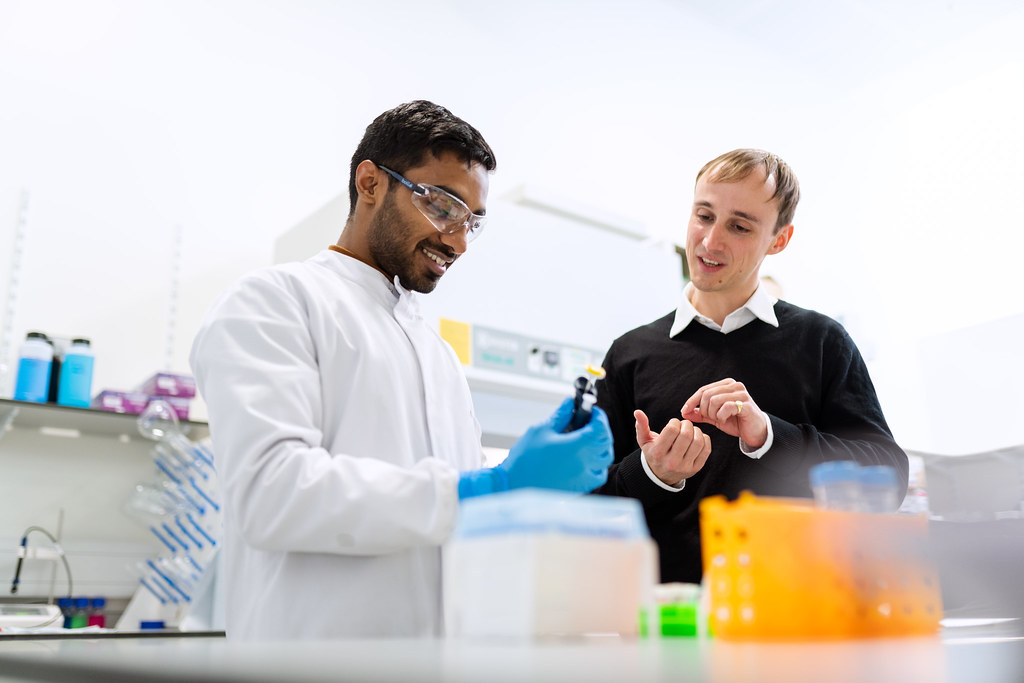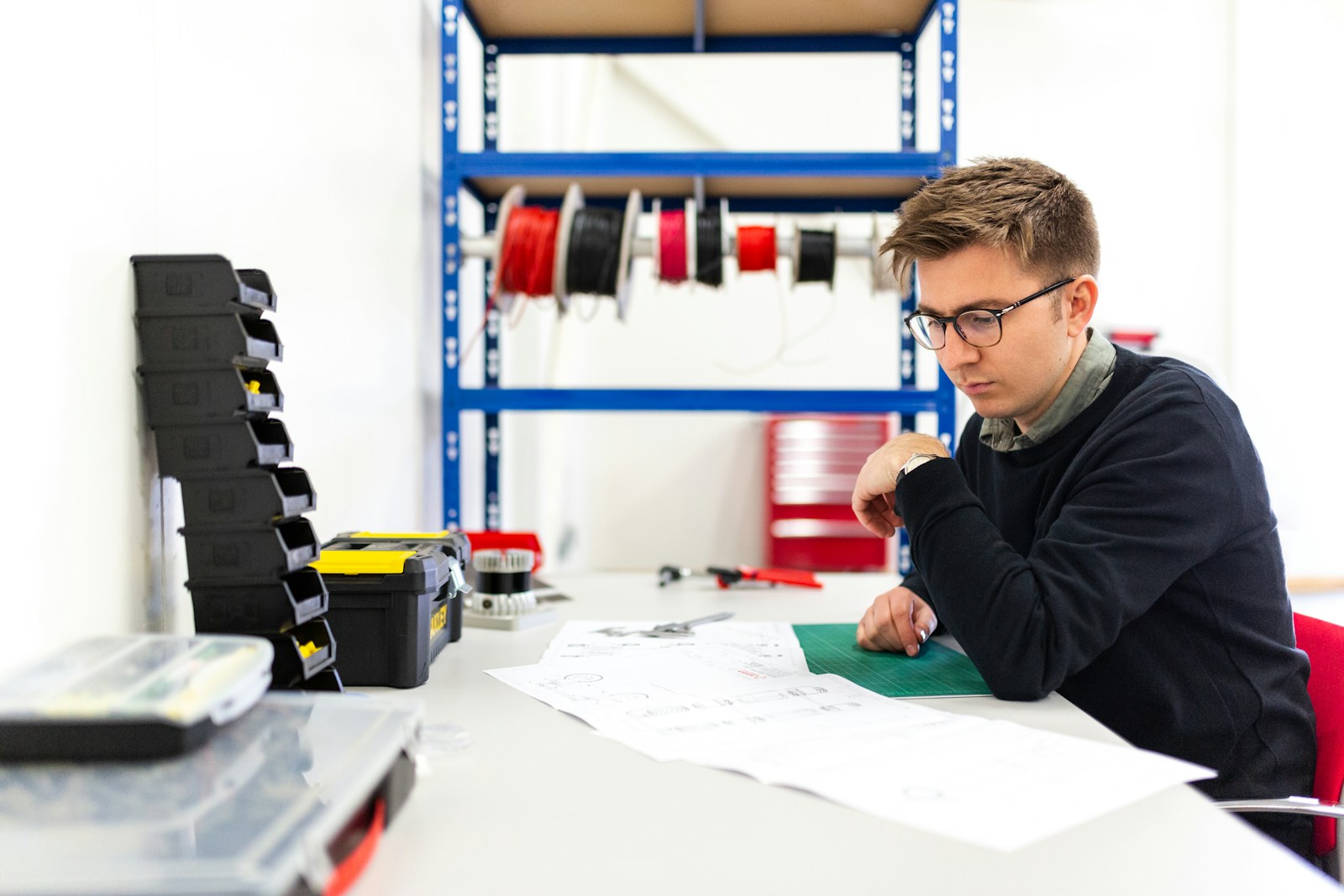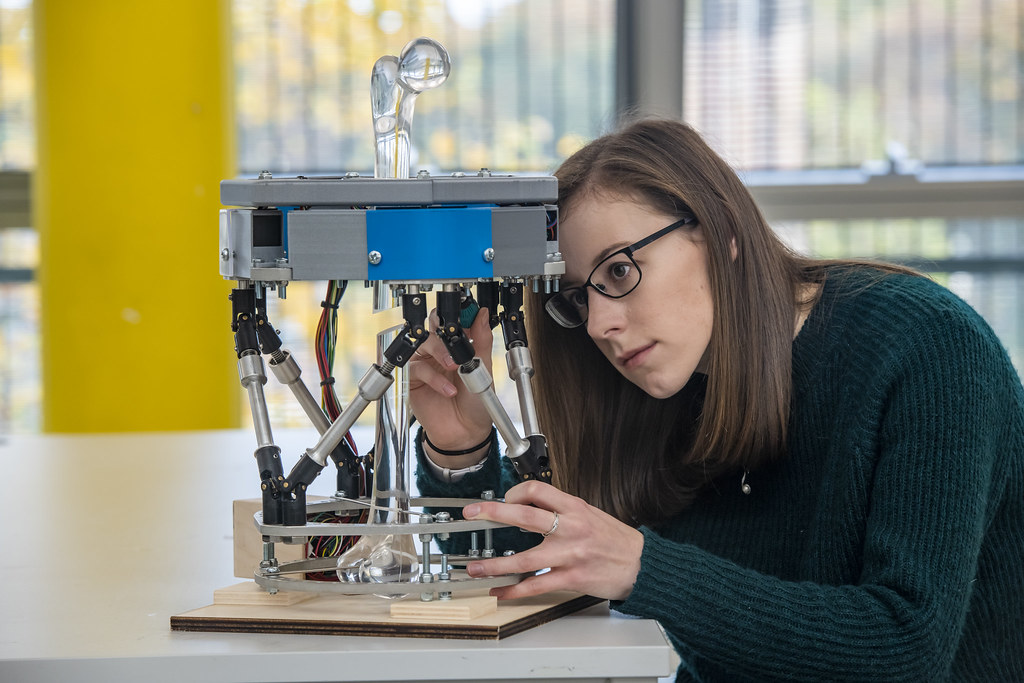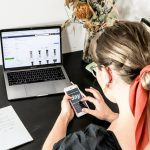Biomedical engineering stands @ vanguard of innovation combining engineering standards with medical and biological sciences to boost healthcare technologies and enhance affected person effects. In South Korea country famend for its technological prowess and modern scientific centers sphere of biomedical engineering has received big traction in latest years.
This complete guide will walk you via steps to grow to be biomedical engineer in South Korea overlaying whole lot from educational necessities to activity market tendencies and future possibilities. Whether youre scholar considering your career options or professional looking to transition into this thrilling subject this article will offer precious insights that will help you navigate your path to fulfillment in South Koreas biomedical engineering sector.
Education Requirements

The adventure to becoming biomedical engineer in South Korea frequently starts offevolved in high faculty. Students aspiring to go into this area ought to cognizance on:
- Excelling in arithmetic in particular calculus and records
- Building robust basis in physics and chemistry
- Developing talent in biology and lifestyles sciences
- Participating in technology galas and research projects to benefit hands on experience
Undergraduate Degree Options
Most biomedical engineering positions in South Korea require @ least bachelors diploma. Common undergraduate programs encompass:
- Biomedical Engineering
- Bioengineering
- Electrical Engineering with focus on biomedical programs
- Mechanical Engineering with specialization in biomechanics
These packages usually take 4 years to finish and provide stable basis in engineering principles biology & clinical sciences.
Top Universities for Biomedical Engineering in South Korea
Several South Korean universities offer international elegance biomedical engineering packages:
- Seoul National University (SNU)
- Korea Advanced Institute of Science and Technology (KAIST)
- Yonsei University
- Korea University
- Pohang University of Science and Technology (POSTECH)
These institutions are known for his or her present day studies facilities collaborations with industry partners & strong worldwide networks.
Skill Development
Technical Skills
To prevail as biomedical engineer in South Korea youll want to increase range of technical skills:
- Proficiency in laptop aided design (CAD) software
- Programming languages including Python MATLAB & C++
- Data analysis and statistical modeling
- Knowledge of medical device regulations and standards
- Understanding of biomaterials and their programs
Soft Skills
In addition to technical know how smooth talents are essential for profession advancement:
- Critical questioning and trouble fixing competencies
- Effective communication each written and verbal
- Teamwork and collaboration
- Adaptability and willingness to examine
- Project control and leadership abilties
Language Proficiency
While many scientific papers and technical files are available in English skillability in Korean is sizeable benefit:
- Aim for @ least intermediate level Korean (TOPIK degree 3 4)
- Consider taking extensive Korean language publications
- Practice technical terminology specific to biomedical engineering in Korean
Navigating South Korean Education System

Admission Process for International Students
If you are an global pupil trying to examine biomedical engineering in South Korea:
- Research universities and applications that align with your hobbies
- Check admission requirements which generally consist of:
- Academic transcripts
- Standardized check ratings (e.G. SAT ACT)
- Proof of English talent (TOEFL or IELTS)
- Letters of advice
- Prepare and put up your application well before closing date
- Apply for student visa once commonplace
Scholarships and Funding Opportunities
Several scholarships are to be had for global students:
- Global Korea Scholarship (GKS)
- POSCO TJ Park Foundation Scholarship
- University specific scholarships (check with person establishments)
- Korean Government Scholarship Program (KGSP)
Research and practice for these possibilities early to growth your chances of securing funding in your research.
Internships and Practical Experience
Finding Internship Opportunities
Gaining sensible revel in is essential for aspiring biomedical engineers. Heres way to locate internships in South Korea:
- Utilize college career centers and task forums
- Network with professors and enterprise experts
- Attend process fairs and enterprise occasions
- Check web sites of important biomedical agencies and studies institutions
Research Programs
Participating in research packages can set you apart in task market:
- Look for undergraduate studies possibilities @ your college
- Apply for summer time studies packages @ pinnacle institutions
- Consider joining professors research crew as research assistant
Industry Partnerships
Many South Korean universities have partnerships with biomedical agencies:
- Explore collaborative initiatives among your university and enterprise companions
- Participate in enterprise sponsored competitions and hackathons
- Attend guest lectures and workshops with aid of industry professionals
Certification and Licensing
Required Certifications
While theres no precise license required to work as biomedical engineer in South Korea certain certifications can decorate your credentials:
- Korean Professional Engineer (PE) certification in Biomedical Engineering
- International certifications along with Certified Biomedical Equipment Technician (CBET)
Professional Associations
Joining expert institutions can provide networking possibilities and get entry to to sources:
- Korean Society of Medical and Biological Engineering (KOSOMBE)
- Biomedical Engineering Society of Korea (BESK)
- International Federation for Medical and Biological Engineering (IFMBE)
Continuing Education
Stay up to date with ultra modern advancements in discipline via:
- Online courses and webinars
- Workshops and education packages presented by universities and enterprise companions
- Attending national and international meetings in biomedical engineering
Job Market in South Korea

Current Trends
The biomedical engineering job marketplace in South Korea is developing driven through:
- Increasing healthcare expenditure
- Government tasks to promote biotechnology and medical tool industries
- Aging populace growing call for for innovative medical solutions
Major Employers
Top employers for biomedical engineers in South Korea consist of:
- Samsung Medical Center
- Asan Medical Center
- LG Electronics (Medical Devices Division)
- Medtronic Korea
- Siemens Healthineers Korea
Salary Expectations
Salaries for biomedical engineers in South Korea range primarily based on revel in and specialization:
- Entry stage: 30 forty million KRW per yr
- Mid career: 50 70 million KRW according to 12 months
- Senior stage: eighty one hundred+ million KRW per year
Note that these figures are approximate and may range significantly primarily based @ precise employer and area.
Research and Development Opportunities
Government Initiatives
The South Korean government actively supports biomedical studies via various tasks:
- Bio Health Industry Innovation Strategy
- National R&D Projects in Biomedical Technology
- Funding for AI based totally healthcare solutions
Private Sector Research
Many private companies invest heavily in biomedical R&D:
- Samsung Bioepis: Focused on biosimilar improvement
- Celltrion: Specializing in antibody therapeutics
- Osstem Implant: Leading dental implant research
Collaboration with International Institutions
South Korean establishments often collaborate with global partners:
- Joint studies tasks with universities within US Europe & Asia
- Participation in international clinical trials
- Exchange packages for researchers and college students
Challenges and Considerations
Cultural Adaptation
Working in South Korea may also require adjusting to:
- Hierarchical administrative center structures
- Long running hours and determination to activity
- Importance of constructing private relationships (jeong)
Work Life Balance
Maintaining work life balance can be challenging:
- Be prepared for probably long operating hours
- Learn to navigate social expectancies around after work sports
- Utilize holiday time and weekends to recharge
Career Growth Prospects
Consider long term career possibilities:
- Opportunities for advancement inside businesses
- Potential for starting your own biomedical engineering company
- Options for transitioning into academia or studies roles
Future of Biomedical Engineering in South Korea

Emerging Technologies
South Korea is @ forefront of several emerging biomedical technology:
- AI powered diagnostic equipment
- 3D published scientific devices and implants
- Advanced bioimaging techniques
- Personalized remedy and gene cures
Healthcare Innovations
The country is riding innovations in healthcare transport:
- Telemedicine and far flung patient monitoring structures
- Smart hospitals integrating IoT and huge information analytics
- Robotic surgery and rehabilitation devices
Global Competitiveness
South Korea targets to emerge as global leader in biomedical engineering:
- Increasing exports of medical gadgets and biotechnology products
- Attracting worldwide skills and investments
- Fostering startup surroundings inside biomedical quarter
Success Stories
Profiles of Notable Biomedical Engineers
- Dr. Kim Sung wan: Pioneered improvement of brain computer interfaces @ Seoul National University
- Dr. Park Ji hyun: Co founding father of a success scientific AI startup now used in most important hospitals throughout Asia
Career Paths and Achievements
These success tales highlight various career paths:
- Research scientists making groundbreaking discoveries
- Entrepreneurs launching modern biomedical startups
- Corporate leaders riding innovation in massive scientific device agencies
Networking and Professional Development
Industry Events and Conferences
Attend key activities to extend your expert network:
- Korea International Medical & Hospital Equipment Show (KIMES)
- BIO KOREA International Convention
- Annual Conference of Korean Society of Medical and Biological Engineering
Online Platforms and Communities
Engage with biomedical engineering community on line:
- LinkedIn corporations devoted to biomedical engineering in South Korea
- Professional boards and discussion forums
- Webinars and digital conferences
Work Visa and Immigration

Visa Types for Foreign Professionals
Common visa options for biomedical engineers include:
- E three visa: For researchers or professors in precise technologies
- E 7 visa: For skilled people in expert fields
Application Process
To practice for piece visa:
- Secure activity offer from South Korean employer
- Gather required documents (diploma certificate paintings enjoy proof etc.)
- Submit your application to Korean embassy or consulate in your property usa
- Undergo health take look @ upon arrival in South Korea
Long term Residency Options
Consider lengthy term residency in case you plan to stay in South Korea:
- Points based residency system for skilled professionals
- Permanent residency after meeting specific standards (e.G. duration of stay earnings stage)
Ethical Considerations
Bioethics in South Korea
Familiarize yourself with South Koreas bioethical panorama:
- National Bioethics Committee oversees moral pointers
- Strict policies on stem cellular studies and genetic engineering
- Growing emphasis on patient rights and informed consent
Regulatory Framework
Key policies affecting biomedical engineering:
- Medical Devices Act
- Pharmaceutical Affairs Act
- Bioethics and Safety Act
Social Implications of Biomedical Advancements
Consider wider effect of your work:
- Addressing healthcare disparities
- Ensuring equitable get right of entry to to advanced scientific technology
- Balancing innovation with moral concerns
Embarking on profession as biomedical engineer in South Korea offers thrilling opportunities on intersection of generation and healthcare. By following this complete guide you will be nicely geared up to navigate instructional necessities expand vital abilities & faucet into thriving process market on this dynamic subject.
Remember that achievement in biomedical engineering calls for continuous getting to know and adaptation. Stay curious embrace challenges & always try to make tremendous effect on healthcare via your improvements.
Whether you are growing contemporary clinical gadgets getting to know new treatments or enhancing healthcare delivery systems your work as biomedical engineer in South Korea has potential to convert lives and contribute to international health improvements.
As you begin or hold your journey in this field leverage resources networks & possibilities to be had in South Koreas vibrant biomedical engineering surroundings. With determination perseverance & passion for innovation you may build worthwhile profession that pushes limits of whats viable in healthcare era.








3 thoughts on “How to Become Biomedical Engineer in South Korea: Comprehensive Guide”